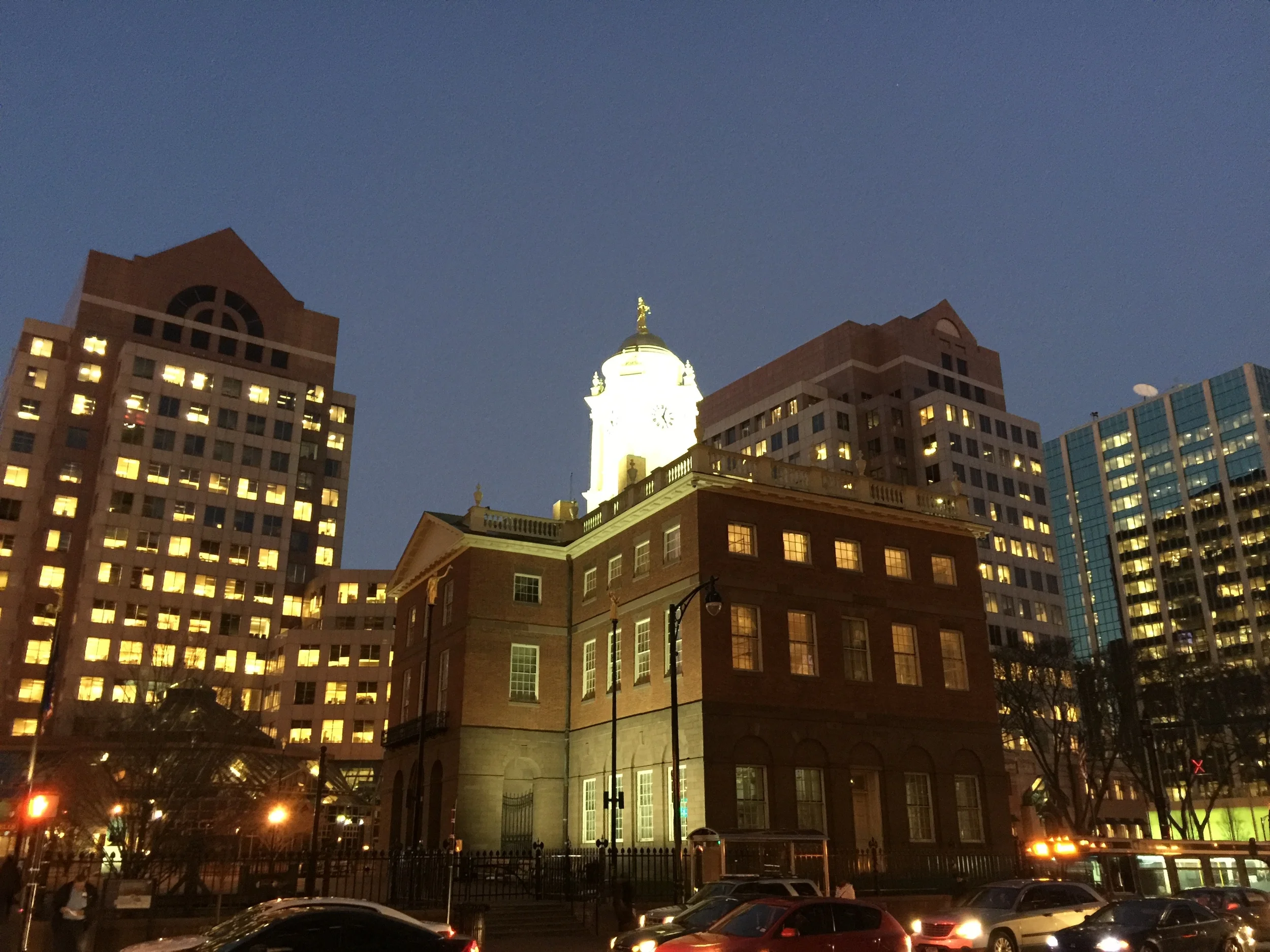Lieberman Emerges As Candidate For FBI Director; Meets With Trump
By Christopher Keating
Hartford Courant
May 17, 2017
Former U.S. Sen. Joe Lieberman of Connecticut met with President Donald Trump on Wednesday as one of four potential candidates to be the nation's next FBI Director.
The White House revealed the interviews Wednesday after Trump left Connecticut following his graduation speech at the Coast Guard Academy in New London.
Besides Lieberman, Trump met with former Oklahoma Gov. Frank Keating, FBI acting director Andrew McCabe and Richard McFeely, a former top FBI official, according to the White House.
The interviews came more than a week after Trump fired FBI Director James Comey, who was overseeing an investigation into whether the Trump campaign colluded with Russia during the 2016 presidential election. In a fast-moving process, Trump has suggested he hopes to choose the next FBI leader before he leaves Friday for Saudi Arabia and other countries in his first overseas trip since taking office in January.
Lieberman could not be reached for comment. CNN reported that Lieberman was first contacted on Tuesday and asked to fly to Washington for a meeting the next day. He said the interview "was not sought after or expected.''
After the inteview, The Associated Press said Lieberman described the session as a "good meeting.''
U.S. Sen. Richard Blumenthal, a member of the Judiciary Committee, declined to comment on Lieberman because of his stance since February that a special prosecutor must be working on the Russia investigation. Although Robert Mueller was announced as the special prosecutor Wednesday, he has not started working on the case.
"I will avoid commenting on any of the potential nominees until I am assured that the special prosecutor has the resources, independence and unconditional mandate to pursue evidence wherever it leads,'' Blumenthal said Wednesday night.
Blumenthal added that the new FBI director "should have a background in criminal justice, preferably as a prosecutor and should be above politics — with no political background or partisan connections. Anybody who takes this job has to have extraordinary unquestionable credibility in criminal justice and must be above politics.''
Based on his views as a conservative Democrat on some issues, Lieberman has been considered for positions by Republicans in the past.
In an interview with The Courant before he left the Senate, Lieberman said that he was secretly considered for jobs under then-President George W. Bush.
"Should I say this?'' Lieberman said aloud during an interview, looking over at an aide. "I don't know if I've said it before. I should have saved this for my book.''
"Twice I was asked if I would consider — I was not offered, and that's very important to say — at the end of the first Bush administration, after he had been re-elected [in 2004],'' Lieberman said. "I was asked whether I would consider accepting the position of ambassador to the United Nations.''
Lieberman spoke with various Bush advisers, including then-chief of staff Andrew Card and national security adviser Condoleezza Rice, about the position before he finally decided to remain in the Senate.
Not long after, Lieberman said, Card called again, asking him about being homeland security chief on short notice. Would he consider replacing Bernie Kerik of New York, who had run into major controversy in December 2004 after being nominated?
"If you're asked by a president, when the focus of my life has been public service,'' Lieberman said, "you really have to give it the most serious consideration — and I did give the U.N. ambassadorship serious consideration. … But ultimately I decided I wanted to continue working in the Senate.''
Lieberman had the chance to caucus with the Senate Republicans after some Democrats wanted to throw him out of the party for supporting the Iraq War and then endorsing U.S. Sen. John McCain of Arizona in 2008 against Democrat Barack Obama.
Despite his voting record with Democrats on core domestic issues like gun control, abortion rights, tax increases, the environment and gay rights, Lieberman also took a series of high-profile positions on national security during his career that won favor with Republicans.
Matthew J. Hennessy, a former Lieberman aide and supporter for more than 25 years, said that interviewing Lieberman could be an olive branch to McCain and U.S. Sen. Lindsey Graham — two Republicans who have been outspoken against Trump on some issues. Along with U.S. Sen. Susan Collins of Maine, the three Republicans are swing voters and close friends of Lieberman in the Senate.
"On its face, it's a smart move,'' said Hennessy, a longtime Democratic political strategist. "I think Joe's happy to go in and meet with the president, but this also may show Trump is trying to show it's a serious search. This isn't the first time that he's invited Joe and had it leak out that Joe was coming. During the transition, Trump had Joe come up to Trump Tower to discuss issues.''
